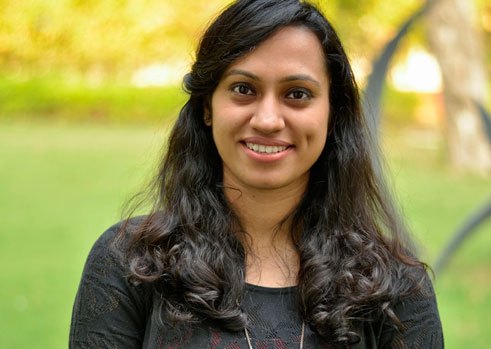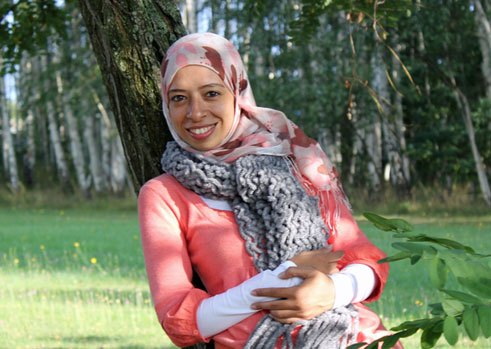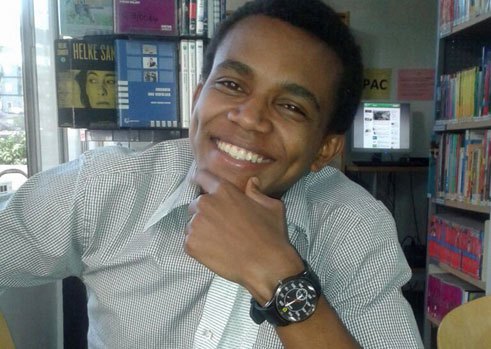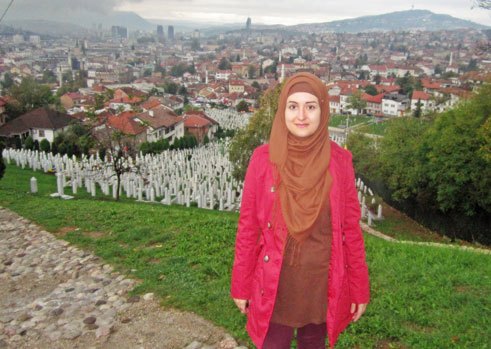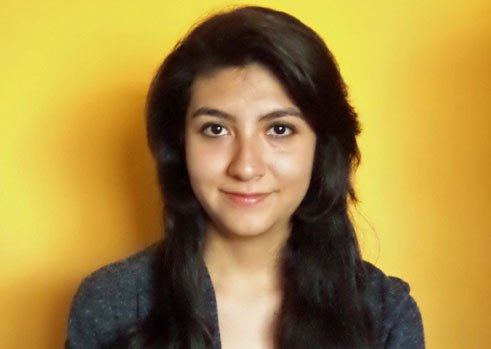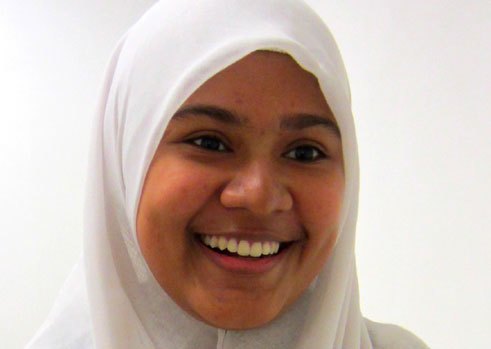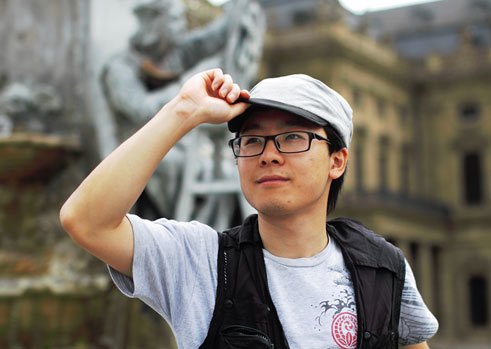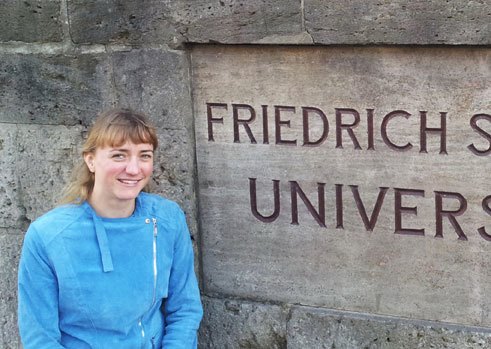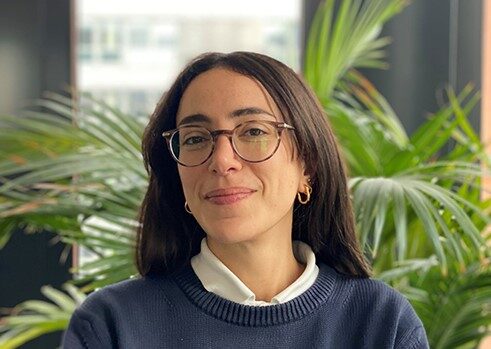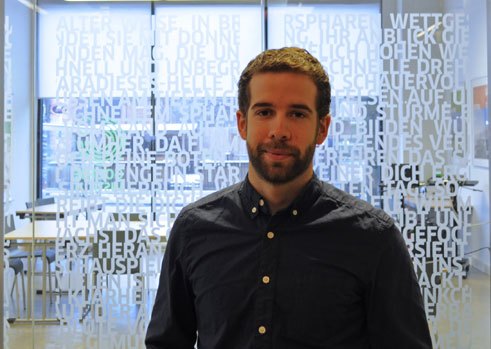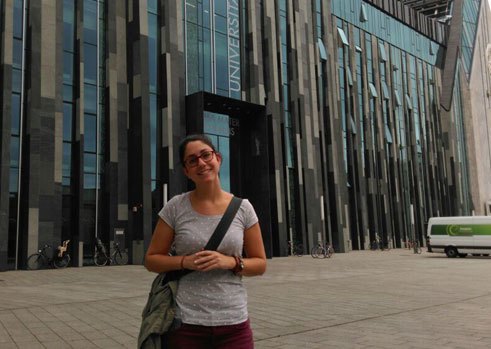Studying German
“I Find the German Grammar Particularly Interesting”
Taking courses in German as a Foreign Language (GFL) or German as a Second Language (GSL) is popular, not just in Germany, but all over the world. What makes young people decide to do a German course of all things? What are the challenges they are confronted with? And what professions do they have in mind for later?
Eleven students from four continents about their personal motivation, their hopes and goals.
-
Megha Sindhwani, 27, doing a PhD course at the University of Delhi, India
“I am doing the GFL course, because I don’t just want to learn the language, but also because I want to get to know other aspects of German life, for example, the history, literature, teaching methods and its regions and culture. What I find particularly challenging are the differences in culture. Both the German and the Indian culture are just so diverse. When I finish my studies, I would most like to work as a teacher of German. It is an exciting profession and the prospect of me passing what I know on to others is a very satisfying one.” -
Doaa Hamed, 27, doing a Master’s course in GFL in an Arab-German Context in Cairo, Egypt
“I decided to study GFL because I wanted to make a career out of the enjoyment I get from teaching and working with children. I was particularly impressed by the fact that as part of my Master’s course we had to do a work placement at a German school in Cairo. When I have finished my studies, I would most like to work at one of these schools and be able to use all the latest teaching methods. Above all I would like to teach my pupils that they should not view the world from just one vantage point, but from several.” -
Teddy Mutiga, 21, doing GFL (Bachelor’s) at the Kenyatta University Nairobi, Kenia
“Why am I studying GFL? I wanted to study a foreign language at all costs and German interested me. In the beginning it was difficult getting to grips with the language, there are a few grammar rules that were a mystery to me, for example, the accusative and dative cases; even the pronunciation was hard, as English and German have a different intonation. Learning German is really quite demanding, but that is also the good thing about it. When I have completed my studies I would like to work for a German company or a German-speaking organisation.” -
Ena Pljasković, 23, doing GFL (Master’s) at the University of Sarajevo , Bosnia and Herzegovina
“I wanted to study German as a Foreign Language, because I love the way German words are pronounced. It was my dearest wish not only to speak the German language, but also to analyse it in depth and to develop an excellent command of it. I find it particularly exciting that our professors require us to get involved in various international projects and events. When I have finished my course, I would most like to work at a languages institute teaching German.” -
Paloma Rocha, 20, doing German literature and GFL at Universidad Nacional Autónoma de Mexico (UNAM) in Mexico
“In my childhood I used to read a lot of German authors. I did not, however, want to read them in translation, but in the original. That is why I decided to study German literature, focussing on teaching methodology. My course of study presents me with certain challenges such as the language itself, the different mentalities, the fact that there is hardly any support from the state and, not least, the difficult traffic situation on the roads of Mexico City. I want to be a good teacher and bridge the gap between non–German speaking people and those who speak German.” -
Hosniyah Sheik, 21, University of Malaysia (Bachelor’s)
“German can only be of advantage to the new generation of thinkers, artists and travellers from Malaysia. The two countries are of course far away from each other, but by learning the language I am able to directly access German culture films, books and music. I am able to experience everything first hand and that is brilliant! When I have finished my studies, I hope to become a teacher of German. When I think of my future work as a teacher, I feel curious, confident and full of respect and I am so looking forward to it.” -
Ting Zhang, 27, doing a GFL course (Master’s) at the Philipps University in Marburg, Germany
“I am studying GFL, because as a teacher of German you don’t just have to be competent in the German language, but you also have to be familiar with teaching methods, regional and cultural studies. For me it is particularly challenging to work with fellow students from different countries, because we have all experienced different approaches to learning and teaching. After my studies I will also have more understanding for different cultures and more specialist know-how in all fields of GFL. This will certainly help me to develop my career prospects.” -
Irene Bens, 30, Department for German Studies Abroad, GFL and GSL (Master's) at the Friedrich Schiller University, Jena, Germany
“I have set myself the goal of getting my Master’s degree and then working as a teacher of German at either a university of applied sciences in the Netherlands or at a university in Europe. Two years ago I was tormented by the question whether I should keep my job as a teacher of German at a Dutch school or whether I should do a two-year Master’s degree course in Jena (a long–cherished dream of mine). It was getting admitted to the course that finally tipped the balance! Now, at the end of my studies, I really have to say that it was worth all the effort.” -
Celia Fernández Dochao, 22, doing a course in Translation and Modern Languages at the Universidad Nebrija, Madrid, Spain
“I am studying translation and modern languages and have chosen German as a second foreign language. I find the grammar particularly interesting, because it is very different from Spanish. When I have finished my course, I would like to go to Germany. I would like to speak fluent German, because I would like to work in Germany for a while.” -
David Gosselin, 29, doing a PhD at McGill University in Montréal, Canada
“As Canadian universities do not offer any GSL programs, most of the teachers of German are experts on German philology, i.e. literary studies specialists. This is why Master’s course students and people doing doctorates take extra advanced training programs for German in the course of their studies. I have been teaching German at McGill University and for the last year I have also been teaching at the Goethe-Institut in Montréal. Later I very much hope to continue teaching German and German literature.” -
Julia Weißschädel, 25, doing a GFL course (Master’s) at the University of Leipzig, Germany
“I startet with GFL/GSL because I found out I needed a subsidiary subject. In the course of time, however, the interest I had turned into a firm career aspiration and that is why I am now doing my Master’s in GFL. So far one of the major challenges has been the practical experience aspect as the lectures I had in my Bachelor’s course were very theoretical. I am particularly attracted by the possibility later of being able to work all over the world with all kinds of different people and, at the same time, being able to combine my dream job with my desire to travel.”
